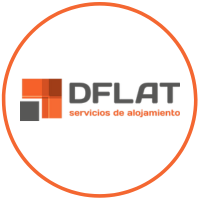Financial leverage (ratio of credit to invested equity) is a powerful tool that allows you to trade with more money than you actually have available in exchange for taking on more risk.
It is well known that a mortgage on the acquisition of a property offers the possibility of operating with funds provided by a third party and, therefore, with more money than you actually have. Therefore, in real estate, you can leverage yourself to buy a home. Leverage is achieved through a mortgage loan granted by the bank.
Financial leverage. Advantages
While financial leverage can increase profitability, it also comes with some risks.
- In the event of a serious rise in interest rates, the income obtained may not cover the payment of the mortgage loan
- In the event of a fall in the price of housing in the market, the losses can be significant, since the debt with the bank is maintained
These risks are not important if you are prudent in the operation. To mitigate these risks, it is essential to:
- Choosing a location with high rental demand is not speculative
- If you have financial problems, plan B should be to rent it out
- Buy at a competitive price,
- Consider buying homes to renovate to increase profitability.
- Don’t mortgage too much, the market asks for 80%, we mortgage 60%
This strategy protects you in the event of fluctuations in the market and gives you the assurance that, in the long term, the value of the property will increase.
A second property in Madrid as an investment to gain profit from
The key locations for investing in housing, and thus guaranteeing security and profitability are in the main European cities. We highlight real estate investment in Madrid due to ambitious development projects that will boost the economy over the next 20 years. The main one is Plan Nuevo Norte.
A smart way to use financial leverage for a home is to consider buying a second home with rental in mind, i.e. as an investment to be exploited rather than simply as a summer property.
This allows you to use your resources more flexibly and generate additional income through year-round rentals.
In Spain, it is quite common to have a second home to enjoy during the summer or as coverage for the retirement pension. Nowadays, the acquisition of a second property is aimed at marketing, with the possibility of spending the income obtained from it on reinvesting or renting the summer house. That’s why this kind of investment in a city provides some sort of flexibility without being tied to a site or forced to maintain it.
The real benefits of financial leverage in housing in Madrid
Borrowing to finance an operation (financial leverage) increases profitability. Everything that exceeds the profitability requested by the bank will be yours. But if you operate with a little of your own capital, the profitability will be enormous. Therefore, by trading this way, the profits can be much higher than the initial investment.
Leverage finance also increases risk. If the market falls, the losses can also be multiplied in the same proportion. Before 2008, investors financed up to 100% of the acquisition since they assumed unlimited price increases, but when the cycle was reversed, many lost everything they already had.
To establish control over the risk, it is important to buy at a good price and choose an area that is always in demand. In addition, try to buy to renovate and do not ask for a mortgage above your future payment possibilities.
We advise buying a house that can be used to produce income. All things considered, the most important aspect is to request a mortgage that does not exceed 80% of the mortgage payment, preferably 60%.
The rental payment from your tenant must cover 120% of the mortgage payment. If, in a crisis, rent prices drop by 20%, you will be covered, and you will not have to contribute additional resources to pay the mortgage loan. You would just have to wait for the economy to improve, because in the long run, everything ends up going up. Financial leverage in housing is a must, but you shoud be prudent.
Estimating profitability with bank financing
In a simple way, profitability can be defined as profit amidst own resources.
In a scenario where you sell your home for €1.1 million and finance it with €1 million (all with your own capital), you would get a return of 10% = (1.1 – 1M) / 1M.
If the bank finances 0.5 million, your return would double to 20% = (1.1M – 1M) / 0.5M.
In other words, and in a very, very simplified formula: You sold your house for 1.1 million euros and acquired by 1 million euros.
- With Full ownership capital: Profits of 10% = (1.1M – 1M) / 1M
- With part ownership capital of 50% (bank contribution, so we paid 50%): Profits of 20% = (1.1M – 1M) / 0.5M
Strategically take advantage of financial leverage for a home and maximize your profitability in Madrid.
Additional information for investors in Real Estate
Since 2004, DFLAT has been selling properties for rent through B2C, B2B, moving agencies, relocation and travel agencies, and its own channels.
We offer advice on optimizing the return on your real estate investment and recommend prudent leverage in housing.
If you are an investor or homeowner, we help you maximize the benefits of your property.
Financial leverage keywords
Financial leverage, housing leverage, housing financing, financial leverage for housing, financial leverage in housing,


